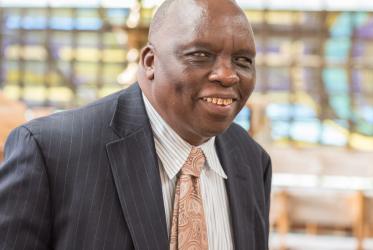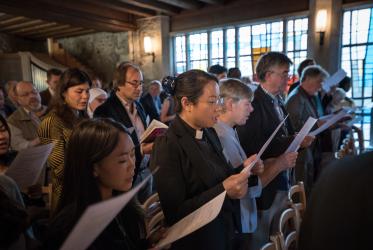Displaying 721 - 740 of 967
27 October 2016
WCC organizes solidarity visit to Ethiopia
24 October 2016
Zambia: “On HIV, we do not compete. We work together.”
20 October 2016
New videos help congregations hasten HIV response
20 October 2016
Kenya: Voice of faith communities crucial in overcoming HIV
14 October 2016
South Sudan: role of civil society vital in seeking peace
04 October 2016
Humanitarian Partnership Conference focuses on inclusive practices
27 September 2016
Honest talk blossoms between youth, theologians in Cote d’Ivoire
14 September 2016
South Sudan Council of Churches issues message to UN delegation
07 September 2016
WCC commends leadership of new human development dicastery
06 September 2016
Nigerian Christians and Muslims open historic peace centre
20 August 2016
Churches call for peaceful dialogue in Ethiopia
19 August 2016






